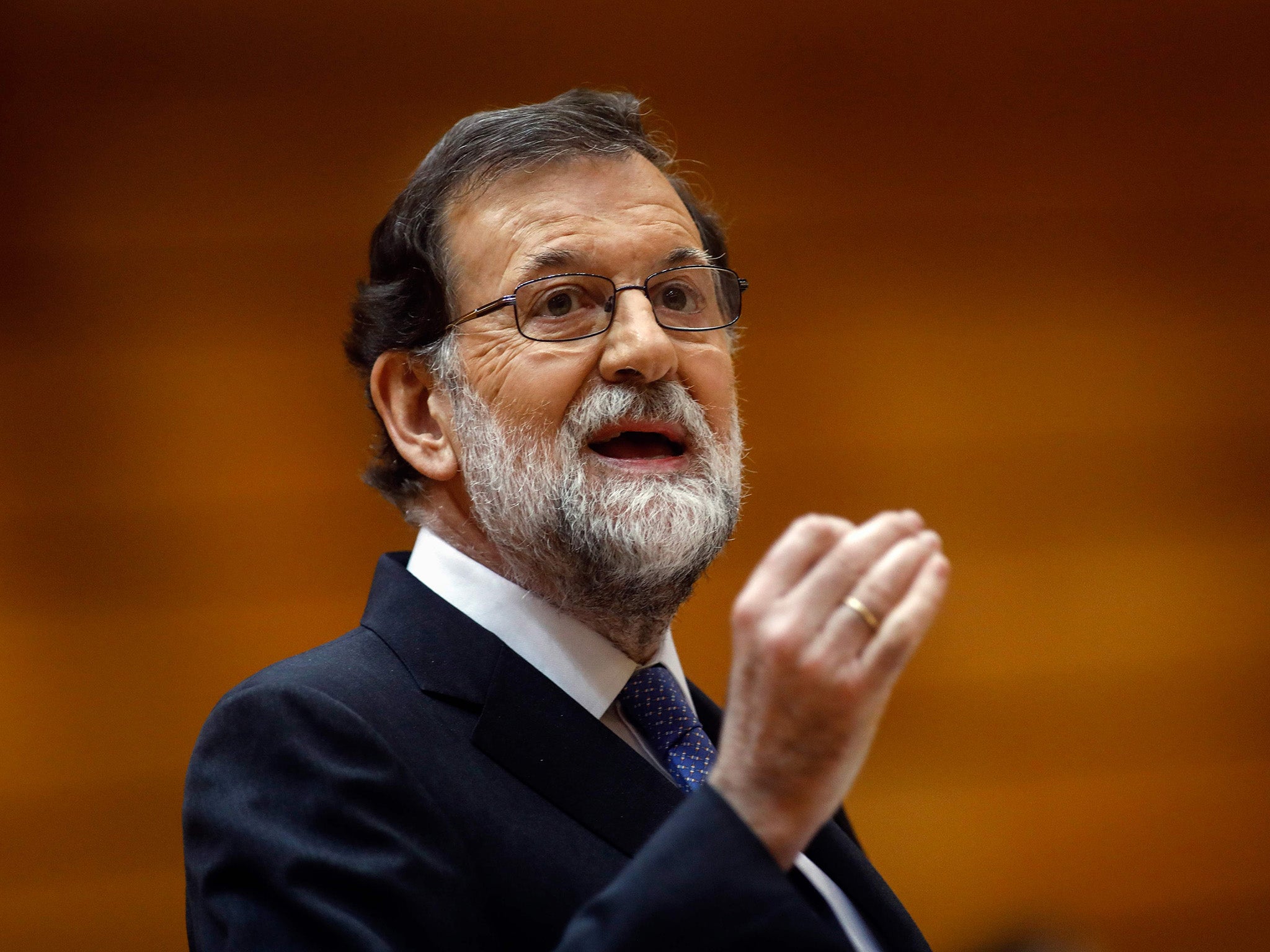Mariano Rajoy: Why is Spain's prime minister facing a vote of no-confidence?
Embattled People's Party leader could be forced out of office over cash-for-contracts corruption scandal involving 29 affiliates

Your support helps us to tell the story
From reproductive rights to climate change to Big Tech, The Independent is on the ground when the story is developing. Whether it's investigating the financials of Elon Musk's pro-Trump PAC or producing our latest documentary, 'The A Word', which shines a light on the American women fighting for reproductive rights, we know how important it is to parse out the facts from the messaging.
At such a critical moment in US history, we need reporters on the ground. Your donation allows us to keep sending journalists to speak to both sides of the story.
The Independent is trusted by Americans across the entire political spectrum. And unlike many other quality news outlets, we choose not to lock Americans out of our reporting and analysis with paywalls. We believe quality journalism should be available to everyone, paid for by those who can afford it.
Your support makes all the difference.Spain's prime minister Mariano Rajoy is currently embroiled in crisis as his country's parliament prepares to vote on a no-confidence motion against him.
Mr Rajoy's centre-right People's Party (PP) - in power since 2011 but part of a minority government after it failed to win successive elections outright in 2015 and 2016 - is at the centre of a cash-for-contracts scandal following the conviction last week of 29 people associated with the party of crimes relating to fraud, embezzlement and money-laundering.
One of the party's former treasurers was jailed for 33 years over the affair, known as the Gurtel case. The party itself was fined £210,000 by Spain's highest criminal court.
Mr Rajoy, 63, could be forced out of office by the ballot, scheduled for Friday, should the the opposition Spanish Socialist Worker's Party (PSOE) secure the support of 176 out of 350 MPs to win an absolute majority.
The votes of the five members of the separatist Basque Nationalist Party who hold parliamentary seats are expected to prove decisive.
"Are you ready to step down here and now? Resign and everything will end," opposition leader Pedro Sanchez, 46, said as he urged Mr Rajoy to save himself the humiliation of a public defeat.
However, the prime minister came out fighting, accusing the PSOE of opportunism over their campaign to oust him and cynically capitalising on public anger over the corruption case for political gain.
"With what moral authority are you speaking? Are you perhaps Mother Teresa of Calcutta?" Mr Rajoy countered. "There have been corrupt people in the PP, but the PP is not a corrupt party."
Regarding Mr Sanchez personally, Mr Rajoy said: "Everybody knows that Pedro Sanchez is never going to win the elections and this is the reason for his motion, his urgency. He wants to be prime minister without having to resort to the ballot box, because even kids know he’ll never win at the ballot box."
"The Socialists have left us with a ruined country and we brought back growth and jobs,"
Insisting that the actions of individuals should not be used to tar the reputations of his predominantly "decent and honest" party, he said that handing power to Mr Sanchez would result in a "Frankenstein" coalition government.
Should he win tomorrow's vote, Mr Sanchez has pledged to reopen talks on Catalan independence and stick to the PP's existing budgetary agenda, despite opposing it in April.
"I commit myself to fulfil the obligations of the EU. We want to maintain the budget approved by this assembly," he said.
Newcomer parties Podemos and Ciudadanos, on the left and centre-right respectively, are meanwhile calling for a snap election, regarding that as the preferable outcome to allowing Spain's national stability to be held to ransom by the "regional nationalists and populists" from Catalonia and the Canary Islands the PSOE have recruited to their cause.
Mr Rajoy became Spain's first-ever serving premier to testify in a criminal case in court in July 2017 when he gave evidence in the kickbacks case, the credibility of which has since been called into question by judges.
Join our commenting forum
Join thought-provoking conversations, follow other Independent readers and see their replies
Comments